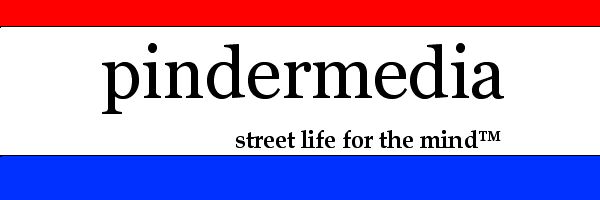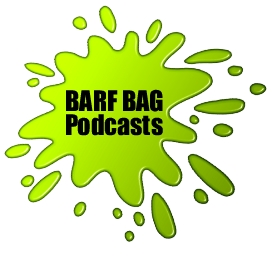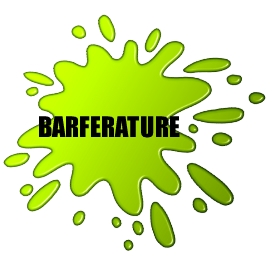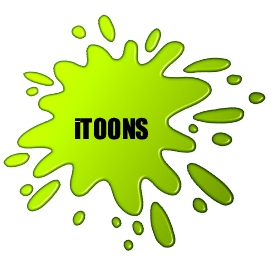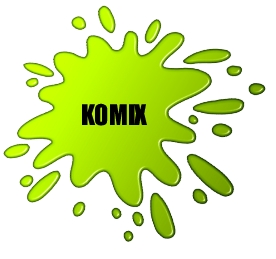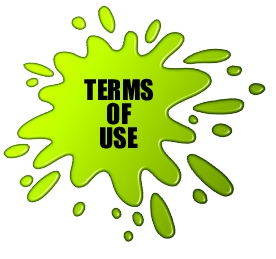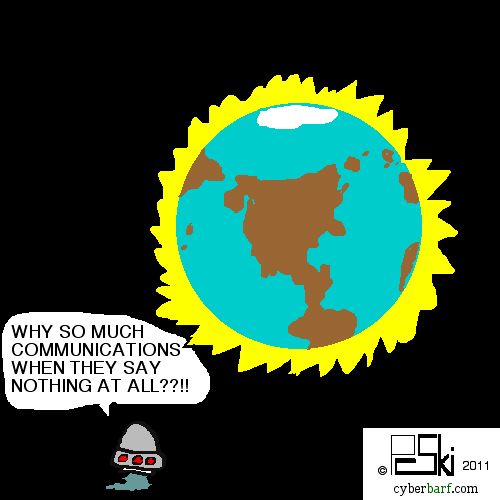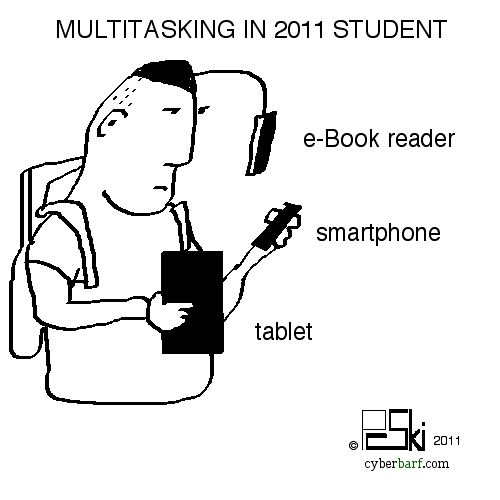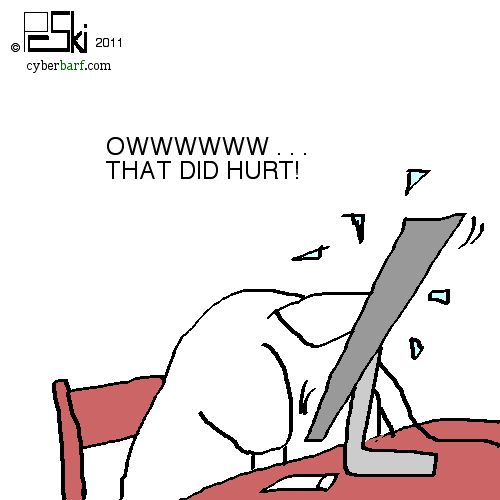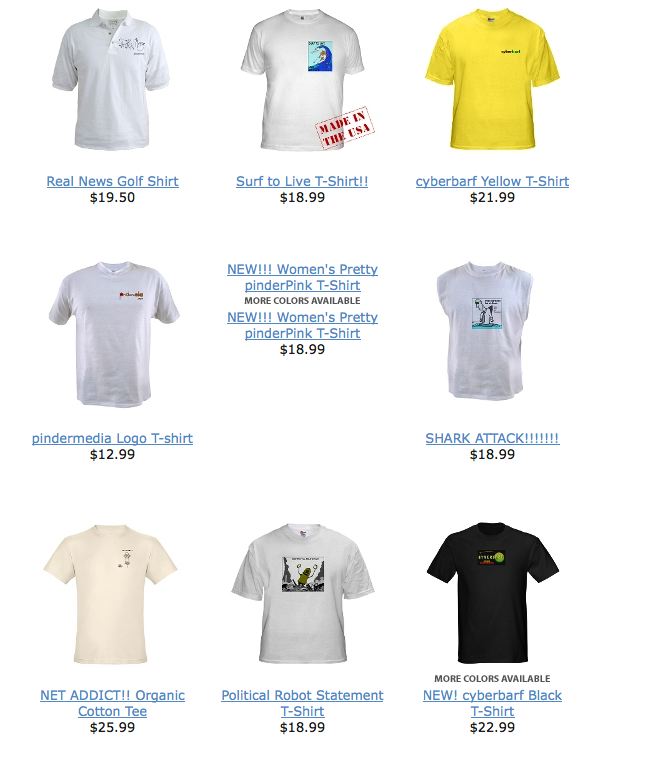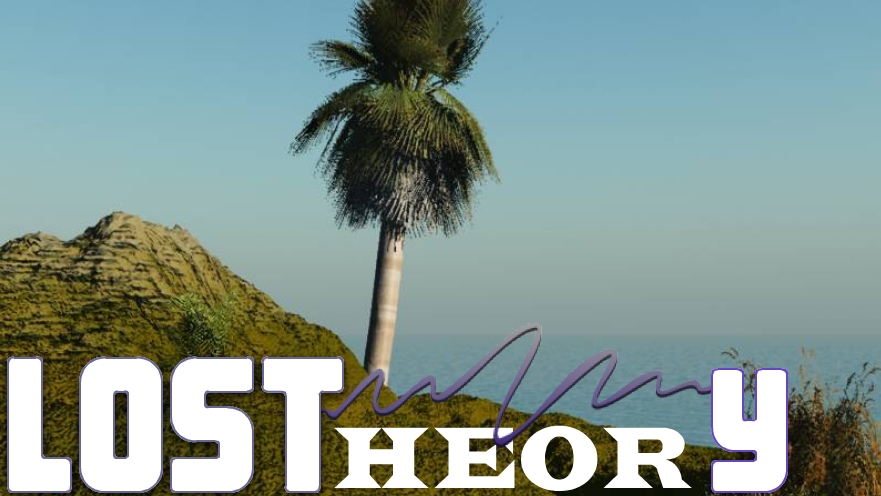cyberbarf
MODERN
NET JOURNALISM ANALYSIS
The
traditional reporting roles of journalism have been imploded and blurred
under the new modern net journalism.
A
reporter was a person who went out and directly interviewed sources
for news stories. Journalist standards and style made each story a
concise, informative, truthful and balanced snap shot of an event,
issue or controversy. Editors reviewed the stories before publication
for errors, omissions and context.
A
publisher is the one who aggregates its reporters, editors, photographers
and writers into a worthwhile publication. The first American publishers
were pamphleteers like John Adams and Benjamin Franklin, who used
their presses to push forward new democratic ideals. The First Amendment
protects publishers against government censorship and control.
With
current technology, everyone can be a publisher. Direct to digital
print. And there lies a danger.
Bloggers
have taken to the web as opinion writers. But many of the old columnists
used their reporting skills to gather facts to bolster their opinions
or analysis. Bloggers in general seem to think that their thoughts
carry the same weight as an expert.
It
takes time and resources to create original news reporting. Professional
journalists are skilled writers who strive to get the facts correct
for each story's fundamental questions: who, what, when, where how,
and why.
Most
paid journalists don't believe most independent news sites are journalism.
Linking, cut and paste, plagiarism are not tools of original reporting.
It is diluting the original source material without attribution. In
the old days, that was a cardinal sin. In the digital world, it is
a business practice.
Content
farms are quasi intellectual sweat shops. Writers are paid by the
page views and not the quality of their stories. The trickle down
of the revenue of net ads is small. So what gets traffic? Snark, gossip,
scandal and pseudo-celebrity rumors. A steady web diet of this material
is like starving a child's mind with a total candy diet.
Some
farms try to distinguish their operations by calling themselves content
mills. The idea is that they can find the current key search words,
then fashion content to match what the net surfers are thinking about
at any given moment. The problem is that the net viewership is a random
changing stream of subconsciousness. What is a trending topic at 9
a.m. is out of mind by noon. So this mill philosophy does not encourage
independent or original reporting. It tries to meet an immediate demand
by searching the net for those trend topics then cutting, pasting
or aggregating those current posts as their own. It may be the sales
pitch de jour to advertisers and investors, but for bread and butter
reporters, it is still snake oil.
Reporters
covered stories on salary. Stringers were independent contractors
paid by the published story length.
Freelancers
or contract writers are now paid a fraction of stringer rates based
upon the number of page hits per story. A government board story for
a local newspaper may be worth $50-100 for a stringer, who would put
in several hours in going to the meeting then writing the article;
but that same story for a freelance net writer could only generate
a few dollars. It comes down the vocal but unlistened net mantra of
“who is actually making any money on the internet?”
Content
farms are geared to grinding out as much “new” content as
possible in each hourly cycle. Their freelancers ability to get paid
the minimum wage equates to having to post dozens of stories with
the right hyperlinks or key words in order to generate enough hits
to make a modest return. The incentive is not on original quality
reporting but quantity of story materials. The easy way out for some
is to cut and paste local stories into their own “content”
to post on a feeder site.
It
is becoming a weekly occurrence that a national or local media outlet
is calling out a web site or web writer for lifting their original
stories without attribution. It is becoming an ethical pandemic because
the freelance citizen journalism may not have the professional training
to know better, and web operators are not in the business of grooming
their content providers with hard standards and practices.
Successful
sites like deadspin find no ethical lapse in paying money for dubious
stories so long as the scandalous headlines drive traffic to their
pages. Checkbook journalism (paying sources for information) is a
taboo in traditional news organizations.
Then
there is the new media entrepreneurs, like Taiwan's Jimmy Lai, who
takes “information” (whether true or not) and re-packages
it as news-entertainment posts. Americans are most familiar with his
network's computer video game style animated news stories like last
year's Tiger Woods scandal. This system believes information is merely
a wordy commodity to be manipulated or mass produced as content. There
is no need for fact checking, balance, or getting commentary from
the actual subject of any story. People just want information, he
says.
The
public has at its fingertips more information than the Library of
Congress. But misinformation is masquerading as news. Truth is no
longer the key to a writer's work. The idea of getting the information
out into the public data stream first without consequences is taking
hold. And many Internet news consumers apparently don't care if the
information is wrong or misleading - - - it dovetails into another
old adage: “you get what you pay for.” The culture of the
net started with the principle that the network should be free. This
was mangled into the concept that everything on the net should be
free, including copyrighted original content. So much of the content
uploaded to the servers is unfiltered, unedited and unchecked writer
opinion or second hand hearsay, it is not a reliable basis for public
discourse or policy.
cyberbarf
MAKING
PHONEY MOVIE CREATIVITY
If you give someone a shiny new piece of technology, he may find
an unexpected use for it.
Enter
stage right South Korean filmmaker Park Chan-wook. The Associated
Press reported that Park's new horror-fantasy movie called “Paranmanjang"
was filmed entirely on his iPhone. The 30 minute film is about the
ups and downs of a man's current and former lives. It cost $133,000
to produce.
Now,
during the introduction of the iPhone 4, there was no mention in the
Apple materials about the smart phone's Hollywood filmmaking credentials.
It probably never occurred to the design engineers that the camera
phone purpose of taking stills or short web videos would be extended
into long play movie sequences. But a camera is a camera. Video output
is video output. By putting the means of production into the palm
of a person's hand is a liberating experience. In essence, it the
the Apple experience that has been marketed for decades. The powerful
tools in the hands of the individual transferred the computing power
of university laboratories into desk top computers.
Before
Hollywood went digital, certain directors used videocameras to record
the scenes as the 35 mm cameras caught the action. The video camera
was positioned next to the main camera to give the same perspective.
In this manner, the director could review the scene immediately on
the video tape to determine if he needed to freshet the players. In
the past, a director would have to wait a day for the film to be developed
and shown in the “dailies.” The use of a home or hobbyist
camera allowed directors to speed up the pace of shooting and eliminated
costly re-takes that put production schedules in disarray.
Now,
a hand held smart phone has the possibility of becoming another creative
tool. No one knows what the quality of the film using just a phone
to take the pictures will look like, but even some “home movie
looking” independent films like the Blair Witch Project
garnered critical acclaim. The biggest obstacle to movie making is
the cost of equipment (rental or purchase) and the output production
costs (developing and editing the images).
If
you look closely at a film, no one camera angle last more than a minute.
A film is a series of camera shots, scene cuts and transitions. Take
a blockbuster chase scene: a car slides through a corner, cut to an
oncoming shot of the car, then cut to it flying over hill, the cut
to a trailing shot of sparks flying as it hits the asphalt. Each one
of those short snippets are sewn together to show multiple angles
of the action sequence. But each one of those segments may only be
a few seconds long. Just as a smart phone video capture has a limited
amount of video space, one can quickly download the files to a computer
to be edited, assembled in polished in a software program like iMovie,
or After Effects.
So
filmmaker Park has taken the “what if” out of the equation
of whether it is possible to extend the video components of smart
phone technology to the creative plane of movie creation. Part of
the creative process is trial and error. Whether this mode of film
making will be acceptable is yet to be seen. But if you build it,
someone will try to (mis)use it.
cyberbarf
SHUT
DOWN TURN OUT NET KILL SWITCH
Government
corruption. High food prices. Rampant unemployment. Government regulatory
constriction on civil liberties. Police brutality. It could been news
stories from Chicago and the United States. But those underlying themes,
underreported by the national press, are the seeds of the sudden,
chaotic and deadly street violence that swept through the North African
states in late January, 2011. The fierce protests in Cairo, Egypt
call into question the deadly balance of power to anarchy in the Middle
East.
Government
officials, under pressure from political groups, refused to reform
the 30 year emergency reign of Egyptian President Mubarak. Egypt was
the first Arab state to come to a peace accord with Israel. Egypt
was the first to embrace a secular, Western economic system. As the
gateway from the oil states to Europe via the Suez Canal, the strategic
stability of the Egypt has great consequences throughout the West.
In
1981, tension between Islamic militants and Christians boiled over
into street riots. A nationwide security crackdown continued for most
of the year. In that October, President Sadat was assassinated bringing
Vice President Mubarak to the presidency. Mubarak has survived six
assassinations. In the 1990s, radical terror organizations tried to
overthrow the Egyptian government. Security forces quelled the unrest.
History is repeating itself. Attacks on Christians have risen in the
past year. Mubarak has continued to consolidate power by not allowing
religious factions a political party in the national assembly. A major
factor contributing to this unrest is a global recession and high
unemployment. People in the streets is a sign of frustration and discord
over the state of their lives. Just in any powderkeg, the means of
communication in certain respects is the means of restoring control.
A mob mentality quickly shifts through rumor and discord to fuel violence.
The speed of mobile devices like cell phone text messages and video
streams can quickly ignite stressful situations. The people were ready
to vent; they just needed the right catalyst to take to the streets.
Officials
underestimated (and the media oversimplified) the social networks
contributing to the Egyptian protests. Egypt did the near impossible:
it cut the Internet servers, blacking out the net for the entire nation.
A few individual financial servers stayed on line during the black
out. But the scope of cutting the umbilical cord of the digital life
took many by surprise. Most Western people have welded their smart
phones to their hands and minds. The Internet has become more than
a telecom tool but the intellectual daily bread. The hard swallow
of American broadcasters was what would we collective do if the web
went dark?
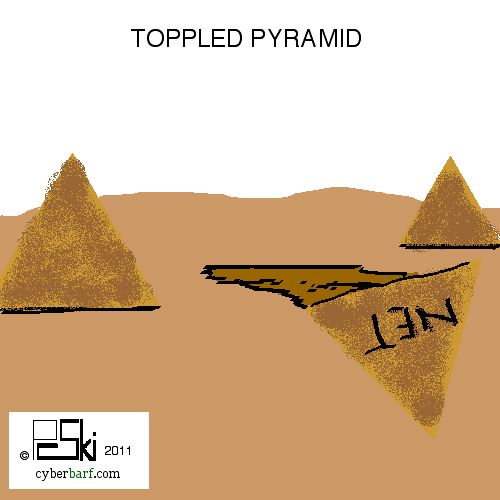
The
disruption of the Egyptian network did not quell the protesters in
the streets. It added to chaos. The looters began to raid houses and
store fronts. The police vanquished the streets to the military. As
of this posting, the situation is still unsettled even after a reshuffle
of the President's cabinet.
All
the elements are in place to disrupt the Internet China has put in
censor firewalls on content and protests. Google has been filtering
its search results in a pay-to-play context which leads to less desirable
results. Telecommunications companies are highly regulated industries.
Government influence, regulation can easily flip over to total control
under the guise of a national crisis. The US administration has discussed
the possibility of an American kill switch as a tool for national
security. The FCC continues to ramp up its push to control Internet
access. It is only a matter of time before American regulators constrict
the freedom of the indent under the friendly buzzwords of net neutrality,
openness, or fair access.
